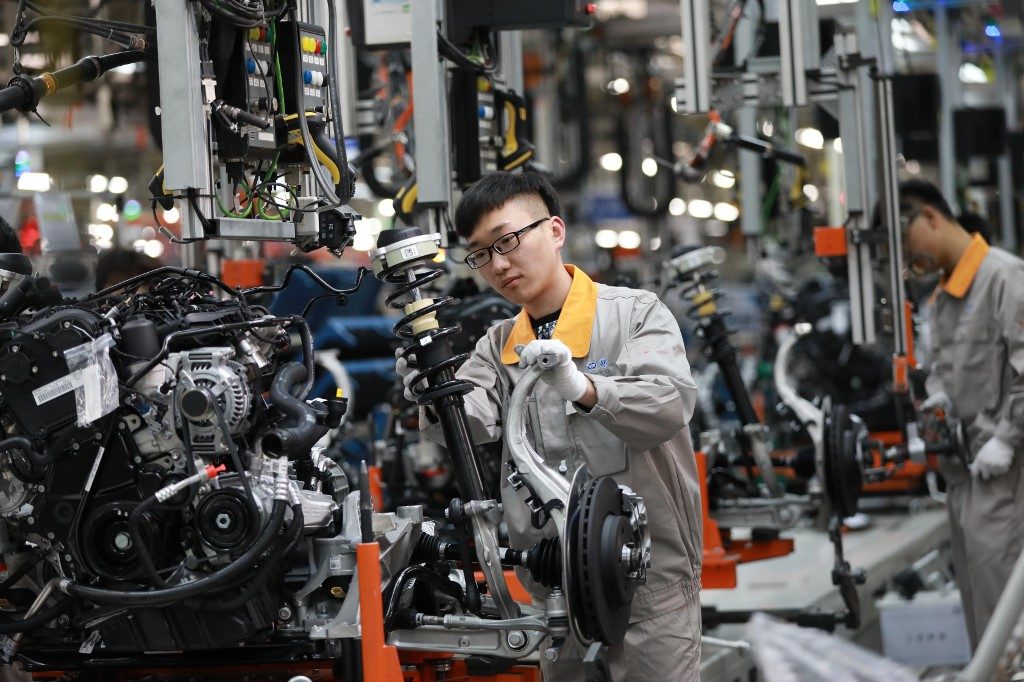SUMMARY
This is AI generated summarization, which may have errors. For context, always refer to the full article.

WASHINGTON, USA – There is trouble on the horizon for the global auto industry, which faces new European anti-pollution standards, shrinking Chinese tax breaks, and rising trade barriers, according to the International Monetary Fund (IMF).
In a report published Tuesday, October 15, on the global economy, the IMF casts a glance at this manufacturing sector, which is confronting a fundamental transition: “decarbonization.”
The industry contracted last year for the first time since the global financial crisis began, contributing to the current global economic slowdown.
“Near-term prospects for the industry remain sluggish, and efforts to decarbonize pose a fundamental challenge in the medium term,” the report said.
Auto manufacturing – which accounts for 5.7% of global gross domestic product (GDP) and 8% of goods trade – shrank by 1.7% last year by volume of vehicles produced, according to the IMF.
In China, the world’s largest auto market, auto sales fell by 3%, their first decline in 20 years. Similar declines were recorded in Germany, Italy, and Britain. In the United States, sales have continued to rise, but only slightly.
The worsening performance has sent share prices for the 14 largest manufacturers down by 28% on average, the report said.
The auto industry’s retreat shaved 0.4% off of global GDP last year, while auto exports, even by the world’s largest manufacturers, fell 3.1%.
For this year, industry analysts forecast a 4% decline, the report said. It blames tariffs in the US-China trade war, which have made China’s US auto imports more expensive.
In Europe, falling demand for diesel-powered autos, Brexit uncertainty, and new emissions tests expected at the end of 2019 are weighing on industry.
Among the major causes of last year’s slowdown are new European pollution standards known as WLTP (for Worldwide Harmonized Light Vehicles test).
“The large number of models requiring certification led to bottlenecks at testing agencies and several automakers had to adjust production schedules to avoid unwanted inventory accumulation,” the report said.
This trend has been exacerbated by slower demand in some emerging markets like Turkey, and above all in China, where the end of tax breaks for auto buyers has hurt demand. – Rappler.com
Add a comment
How does this make you feel?
There are no comments yet. Add your comment to start the conversation.